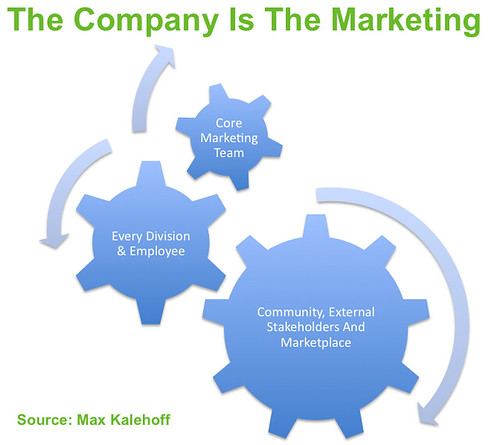Ben Kucher writes in Ars Technica that in the gaming world, in-house PR pros are better than agencies:
Dealing with many people in the PR business is a painful affair. They only know the bullet points for each game, they become uncomfortable when asked substantial questions, and, way too often, looks are prized over skill. This doesn’t have to be the case. By cultivating your own PR team, hiring gamers who honestly love the product and know it well, and staying up to date on the industry as a whole, you’re guaranteed to have a PR team that more effectively talks to gaming writers, the mainstream media, and the gamers themselves.
Now let’s broaden this discussion beyond gaming, to the more general marketing practice. In my experience as a marketer at a few leading interactive-marketing and measurement companies, in-house PR and marketing is almost always the best way to go. But the dichotomy of in-house versus out-house prevents an even higher calling, a greater evolution of marketing within the enterprise.
What higher calling? On a pragmatic level, why not strategically view your entire company as your internal marketing team? Why limit imagination and opportunity through silos and top-down power structures. Sure, department structures help drive accountability. But if marketing is not fully embraced as part of every employee’s job, then the firm is strategically disadvantaged. Importantly, this idea doesn’t end with employees; it applies to external stakeholders like customers and partners, who should be counted as members of the team as well. As I’ve said before, marketing leadership is shifting from command-and-control to cultivate-and-coach.
I feel so strongly about this idea, I’ve made it my platform: Marketing is reputation, and the company is the marketing. Specifically, the goal of marketing is to build an authentic and stellar company reputation. Reputation creates tailwinds that drive business development, customer acquisition and loyalty, product feedback loops, human resource capital and market valuation. How does it all happen?
- Everything is rooted in a strong culture, well-defined values and a compelling brand.
- The culmination of all experiences created for stakeholders subsequently creates reputation.
- The role of the Core Marketing Team is to provide thought leadership, a framework and tools that empower and activate the entire organization to participate in advancing reputation.
What do you think?
(Credit to Peter Himler for discussing these issues and inspiring me to publish these ideas.)



![Reblog this post [with Zemanta]](http://img.zemanta.com/reblog_c.png?x-id=229ae62d-29de-4d89-b7ac-df9f69edcc87)
Let's find time next week in NYC. I am in town Mon-Tue
The $64 question is whether any mid-size/large company is going to view this as more of an opportunity than a risk. One example – I've been talking to a company that's publicly traded ($200+ million in revenue), is growing at an obscene rate and is a Wall Street darling. All that being said, if they're going to maintain the growth rates they need to keep their stock price up, they're going to need to find new lead sources (their traditional lead sources are becoming saturated). They're looking at social media as a key area for lead gen, but the reality is that in order to get the volume they'll need, they're going to need the level of participation that you're talking about. This is an extremely aggressive company and this is a critical initiative…and still I don't know if they're going to get comfortable with the need to make this big bet. Brand control is practically muscle memory for many marketers and getting to a point where they're comfortable making it available to everyone in the company is a hard thing.
By the way, I believe this provides small businesses with an opportunity to disrupt markets in ways that would have never been possible before.
Thanks, you're right. But the opportuny, for most companies, is only going
to get bigger. I would bet this becomes a top-three CMO issue within a
couple years.
Hi Max,
Steve Rubel (an agency guy!) touched on this at Mediabistro Circus today:
http://www.mediabistro.com/prnewser/events/stev…
What I've heard in my many conversations with both internal and agency marketers is that “their simply isn't enough time” for everyone to be an evangelist/marketer. Or – Do I really want a developer or other often non-public facing employee “messing up” all this strategy and messaging I've worked so tireless to develop? Good “excuses?” Maybe not, but they're out there.
Indeed, “the goal of marketing is to build an authentic and stellar company reputation.” How companies get there will never be the same, but it is good to see new ideas continually being discussed.
Joe
Completely agree…my sense is we'll see early adopters do this in the next 12 to 18 months and the early/late majority will be forced to follow after that.
Great post, Max.
Completely agree…my sense is we'll see early adopters do this in the next 12 to 18 months and the early/late majority will be forced to follow after that.
Great post, Max.